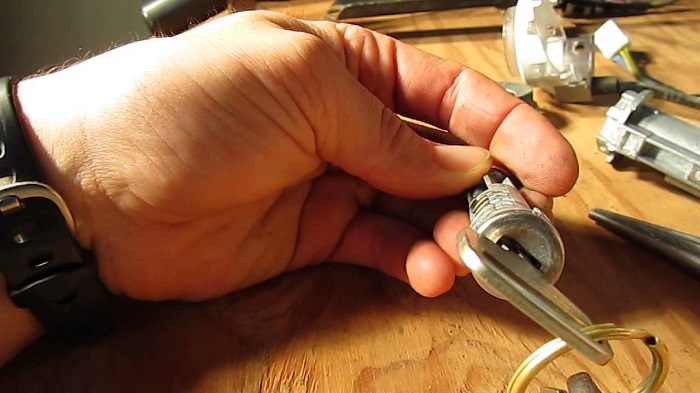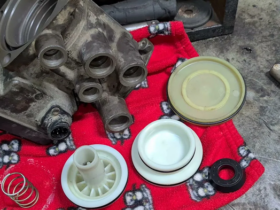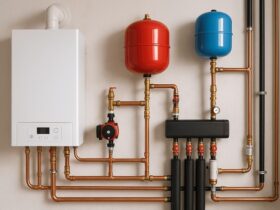The ignition barrel, or ignition switch, plays a critical role in starting your vehicle. When it fails or becomes damaged, your car may refuse to start or even experience electrical issues. In this article, we’ll explore the signs that indicate an ignition barrel replacement is necessary, the situations that typically require this service, and how the replacement process is carried out.
What Is an Ignition Barrel and How Does It Work?
The ignition barrel is the mechanical component where your key is inserted to start the car. It works in tandem with the ignition switch, which sends electrical signals to your car’s engine, fuel system, and other components. For vehicles with keyless systems, this function is integrated into a button or electronic module, but traditional ignition barrels are still common in many cars.
When Do You Need Ignition Barrel Replacement?
Over time, wear and tear, dirt accumulation, or damage can cause the ignition barrel to malfunction. Here are the key signs that a replacement might be necessary:
- Key Sticking or Jamming: If you have difficulty inserting or turning your key, the internal mechanisms of the barrel may be worn or misaligned.
- Key Not Turning at All: A complete failure to turn the key often indicates a serious mechanical fault within the barrel.
- Car Not Starting: If the barrel fails to engage the ignition switch properly, your engine may not start even when the key turns.
- Loose Key Movement: If the key moves freely without resistance or clicks, the barrel’s internal components may be broken.
- Electrical Issues: A failing ignition barrel can cause problems like flickering dashboard lights, intermittent power to accessories, or a complete power loss.
Common Situations Requiring Ignition Barrel Replacement
Ignition barrel replacement may be needed in the following scenarios:
- Normal Wear and Tear: Over time, the repeated action of inserting and turning the key can wear out the barrel’s internal components, especially in older vehicles.
- Damaged Key: A bent or damaged key can warp the ignition barrel, causing it to malfunction.
- Attempted Theft: If someone has tried to force the ignition with a foreign object or screwdriver, the barrel may be irreparably damaged.
- Debris or Foreign Objects: Dirt, debris, or even a broken piece of a key can jam the ignition barrel, making it unusable.
- Faulty Wiring or Electrical Components: In some cases, problems with the ignition switch or electrical system may require barrel replacement as part of a broader repair.
How Is Ignition Barrel Replacement Performed?
Replacing the ignition barrel involves mechanical and electrical expertise. The process typically includes the following steps:
Diagnosis and Preparation:
Before replacing the barrel, a mechanic will confirm that it is the source of the problem. Sometimes, the issue lies with the ignition switch, wiring, or key itself.
Key Removal and Barrel Access:
The steering column is dismantled to access the ignition barrel. In some cases, the vehicle’s anti-theft system must be disabled to prevent triggering the immobiliser.
Barrel Extraction:
The old ignition barrel is carefully removed. This may involve releasing locking pins, screws, or clips that secure the barrel in place. If the barrel is completely seized, additional tools may be needed to extract it.
Installation of the New Barrel:
A replacement barrel is fitted into the steering column. If the vehicle uses a coded key system, the new barrel must be matched to the existing key or reprogrammed.
Testing:
Once the new barrel is installed, the mechanic will test the ignition system to ensure the key turns smoothly, the engine starts reliably, and all electrical components function correctly.
Reassembly:
The steering column and any removed components are reassembled, and the car is returned to working order.
How Long Does Ignition Barrel Replacement Take?
The duration of the replacement process depends on the vehicle’s make and model. For most cars, the job can be completed within 1–2 hours by a professional mechanic. However, vehicles with advanced security features or hard-to-access ignition systems may require more time.
Cost of Ignition Barrel Replacement
The cost varies based on the complexity of the job, the car’s make and model, and the part’s price. On average:
- Parts: The ignition barrel itself typically costs £50–£200, with higher-end vehicles on the more expensive side.
- Labour: Labour charges range from £50–£150, depending on the mechanic’s hourly rate and the difficulty of the replacement.
Always request a quote in advance and ensure the mechanic uses high-quality parts to avoid future problems.
Preventative Measures to Avoid Ignition Barrel Issues
While some wear and tear is inevitable, these tips can help extend the life of your ignition barrel:
- Avoid Overloading Your Keychain: Heavy keychains can put unnecessary strain on the barrel, causing it to wear out faster.
- Use the Correct Key: Never force the key into the ignition or use a key that is bent or damaged.
- Keep It Clean: Periodically clean the key and barrel to remove dirt and debris that could cause jamming.
- Address Problems Early: If you notice the key sticking or the barrel feeling loose, get it inspected before the issue worsens.
Ignition barrel replacement is a crucial service when your car’s starting mechanism begins to fail. By recognising the early warning signs and addressing the issue promptly, you can avoid being stranded or facing more costly repairs. Whether due to wear and tear, attempted theft, or mechanical damage, this repair ensures your car remains reliable and secure.
For long-term peace of mind, maintain your ignition barrel with proper care and seek professional help if you suspect a problem.









Leave a Reply
View Comments